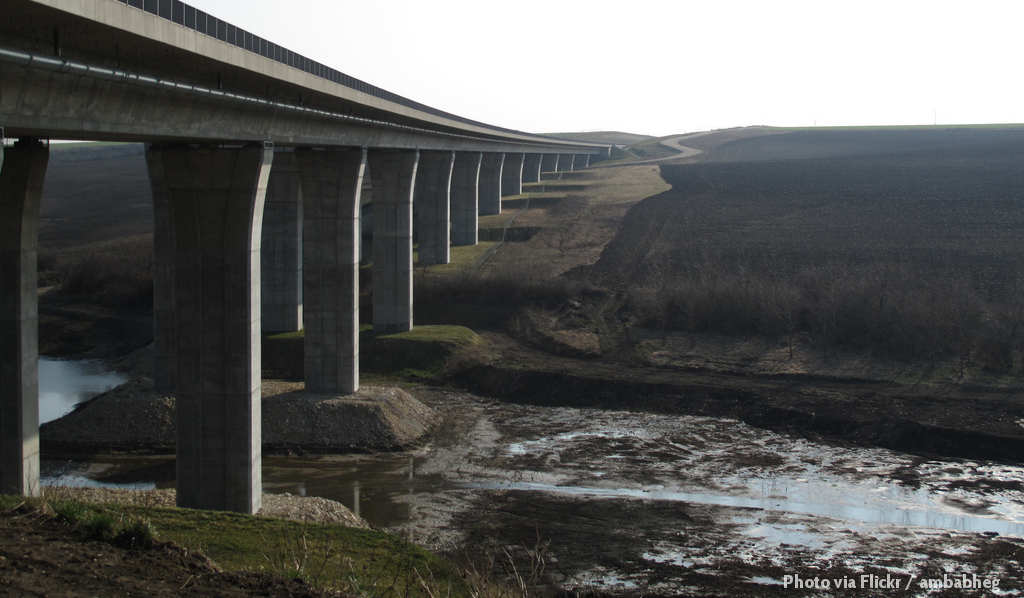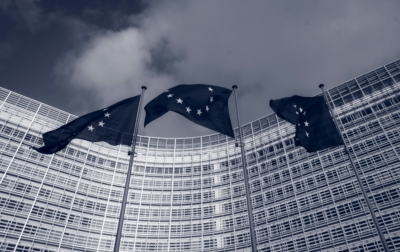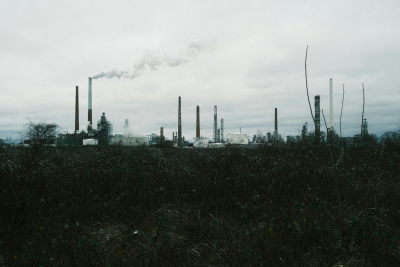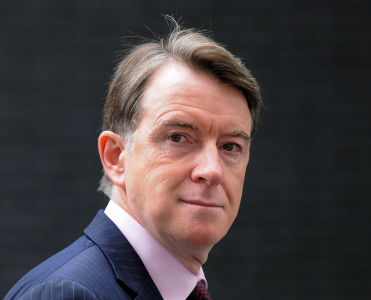From Budapest to Pécs in Hungary the M6 highway gradually weaves along the River Danube, through farms and vineyards. When the main stretch of the road was completed in 2010 one of several seemingly unnecessary tunnels, given the gently rolling landscape, collapsed under the weight of the first rainfall. Alleged corrupt practices were behind the tunnel collapse.
Safe and efficient infrastructure is the artery of a country’s economy and vital for peoples’ mobility. Yet, in Hungary highway construction is seen as one of the most corrupt sectors. During construction of the M6 in 2009 corruption-driven crimes lead to thieves stealing batteries, clods of earth, fuel and concrete. In February 2011, one billion HUF worth of fictitious invoices were discovered by the inspectors of the National Tax and Customs Administration Office during an audit of the construction of the highway between Dunaújváros and Szekszárd.
This is just one highway. But throughout the public procurement process in Hungary there are red flags which point to potential malpractice. In more than half of public procurement procedures there is only one bidder, compared to the EU average of 5-6 bidders per procedure. Procurement tenders without prior notification amount to 13% of all tenders. Transparency International Hungary estimate that 70% of public procurement procedures may be infected with corruption. This is in a country where 22% of households have paid a bribe in the last year and 57% of people believe corruption to have worsened in the last four years.
The problem is not just limited to Hungary. Five billion euros is how much corruption in public procurement could be costing the EU each year. That’s five billion that is designed to go to schools, playgrounds, and infrastructure and development projects.
Corruption costs. In fact, it increases the prices of procurements by 20–25%, which amounts to 40,000 HUF, which is roughly 130 euros per person in Hungary. That’s why we’re working with our chapter, Transparency International Hungary, to bring about clean contracting in public funds using a tool called Integrity Pacts.
Integrity Pacts are designed to bring transparency and monitoring to public procurement projects. They are essentially an agreement between the public body managing a tender and the bidders to not engage in any form or bribery, collusion or malpractices for the duration of a project.
A civil society organisation then monitors the entire duration of the project for any irregularities which could point to corruption or malpractice. As well as fostering collective action, we aim to work with the communities directly affected by the projects to create social accountability around public infrastructure projects.
Transparency International with financial assistance from the European Commission are running Integrity Pacts to monitor 17 major public contracts across 11 EU counties, over four years. Together these contracts are worth nearly €1 billion.
The construction of the final section of M6 Motorway, between Bóly and Ivándárda, is valued at over 160 million euros and will create a direct route from Budapest to the Croatian border. Transparency International Hungary, alongside the Hungarian Ministry for National Development, and NIF National Infrastructure Development Plc. have launched an Integrity Pact to guard against corruption in this latest stage of construction. Through regular site visits, monitoring of accounts and audits Transparency International Hungary will bring independent civil society monitoring to the final stretch of the M6 highway.
In the five previous Integrity Pact projects Transparency International Hungary has worked on they managed to lower construction costs by an average of 36% and increased trust in the whole system with an increased number of companies bidding for contracts.
Together civil society, the public sector and the private sector can take effective collective action to ensure clean contracting. Whether for finishing off a highway, protecting archaeological sites or building new tramlines, with clean contracting public money is spent more effectively. Slowly but surely we shrink the space in which corrupt actors operate.




